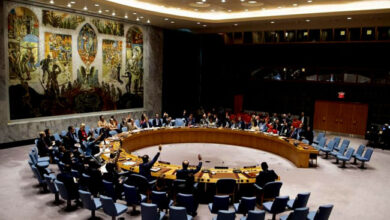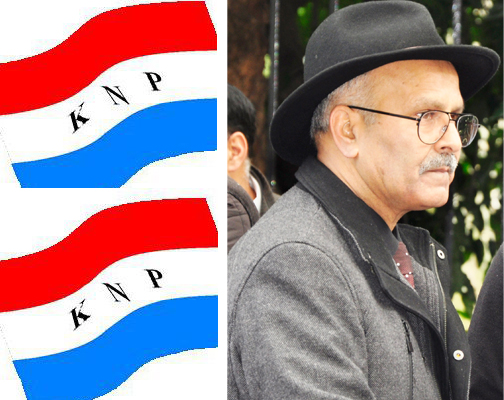G20 Meeting in Indian Occupied Kashmir, Amid Human Rights Concerns

Written by: Dr. Saira Farooq Shah
India’s decision to host the G20 meeting in Kashmir has drawn mixed responses from various quarters. While the Indian government has defended the move as an attempt to showcase the region’s potential for economic development, human rights activists have raised concerns over the plight of people residing in the disputed region. The fact that Kashmir is considered one of the most militarized zones in the world has further fueled apprehensions about the possibility of ongoing human rights violations taking place during the event. Critics have also accused India of using the G20 meeting as a platform to legitimize its illegal occupation of the region. These allegations have been vehemently denied by the Indian government, which has maintained that the event is purely aimed at promoting economic growth and development in the region. However, the issue of human rights violations in Kashmir cannot be ignored.
Kashmir has been a site of conflict between India and Pakistan for decades, with both countries claiming the region in its entirety. In 2019, the Indian government revoked Kashmir’s special status and imposed a communications blackout and a heavy military presence in the region. The move has been widely criticized by human rights organizations, which have documented numerous violations, including arbitrary detentions, torture, enforced disappearances, and extrajudicial killings.
The communications blackout has severely restricted access to healthcare, education, and other essential services for the people of Kashmir. The United Nations Office of the High Commissioner for Human Rights has described the situation in Kashmir as a “collective punishment” of the population.
India’s decision to host the G20 meeting in Srinagar has been seen by many as an attempt to normalize its occupation of the region. The move has been criticized by human rights organizations and politicians around the world, who have called on India to address the ongoing human rights violations in the region.
“It is deeply concerning that India would choose to host a major international meeting in a region where there are ongoing human rights violations,” said Amnesty International’s South Asia Director, Biraj Patnaik. “This decision sends the wrong message to the international community about India’s commitment to human rights.”
The international community has expressed concern over the situation in Kashmir, with some countries calling for India to address the human rights violations in the region. Pakistan has criticized the move as perpetuating India’s illegal occupation of the region.
Despite the concerns, India has defended its decision to host the G20 meeting in Srinagar, stating that the move is aimed at promoting economic growth and development in the region. The Indian government has also claimed that the situation in Kashmir has improved since the revocation of its autonomy in 2019, a claim that has been refuted by human rights organizations.
A recent survey conducted by the International Crisis Group found that 78% of Kashmiris believe that the situation in the region has worsened over the past year, with only 2% saying that it has improved. The survey also found that 65% of Kashmiris support dialogue between India and Pakistan to resolve the conflict.
As the international community continues to monitor the situation in Kashmir, it remains to be seen how India will address the concerns over human rights violations in the region. The G20 meeting in Srinagar will likely be closely watched by human rights organizations and politicians around the world, who will be looking to see if India is committed to addressing the ongoing human rights violations in the region.
The situation in Kashmir is complex and has roots in the history of the region. The conflict between India and Pakistan over the region has resulted in the displacement of thousands of people and ongoing human rights violations. It is important that the international community continues to monitor the situation in the region and demand that India addresses the concerns over human rights violations in Kashmir.
Dialogue between India and Pakistan is crucial to resolving the conflict in Kashmir, and it is important that both countries work towards a peaceful resolution. The international community can play a vital role in facilitating this dialogue and ensuring that the rights of the people of Kashmir are protected.
In conclusion, India’s decision to host the G20 meeting in Srinagar has raised concerns over ongoing human rights violations in the region. While India has defended its decision, the concerns over human rights violations in Kashmir are unlikely to go away anytime soon. It is important that the international community continues to monitor the situation in the region and demand that India addresses the concerns over human rights violations in Kashmir. Dialogue between India and Pakistan is crucial to resolving the conflict in Kashmir, and it is important that both countries work towards a peaceful resolution.
Writer is Associate Professor at Mirpur University of Science and Technology.
Disclaimer: The views and opinions expressed or referred to in this article do not necessarily represent those of WNTV or any of its staff or editors. WNTV’s aim is to provide, so far as possible, a platform for external contributors with limited editorial intervention . Accordingly, readers are asked to note that the publication of articles on this site is not in itself to be taken as WNTV’s endorsement of any reported third party position, policy or statement.





